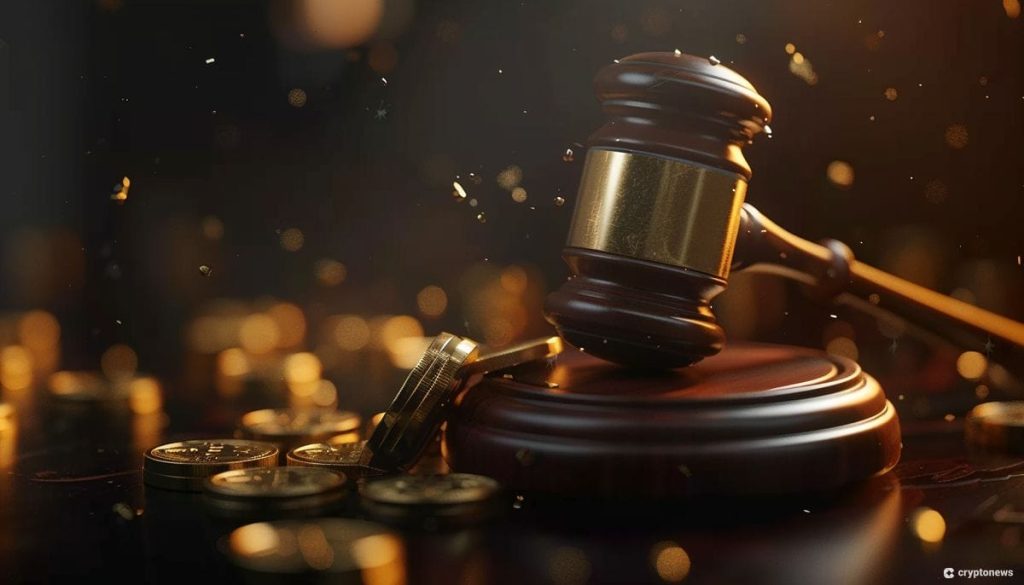The Department of Justice (DOJ) is contemplating whether to choose a well-known New York law firm to oversee a critical assignment concerning Binance due to its prior work for FTX, a rival exchange. The DOJ and FinCEN mandated court-ordered oversight for Binance as part of a plea agreement resolving anti-money laundering and sanctions violations charges. This oversight, known as a monitorship, is required to be implemented for three to five years. Sullivan & Cromwell, the law firm handling FTX’s bankruptcy proceedings, was initially selected as Binance’s independent monitor. This selection was part of a $4.3 billion agreement where Binance admitted to violating US money-laundering regulations and trade sanctions. Sharon Cohen Levin, a former federal prosecutor and partner at the firm, was set to lead the monitorship team.
However, Bloomberg reported that DOJ officials are raising concerns about criticism directed at the law firm due to its prior work for FTX, a former Binance competitor. The DOJ is now exploring alternative candidates for the monitorship role, although FinCEN is still intent on appointing Sullivan & Cromwell. Sullivan & Cromwell, the DOJ, and FinCEN have not responded to requests for comment as of yet. Sullivan & Cromwell represented the now-defunct crypto exchange FTX before its collapse and during its Chapter 11 proceedings, submitting invoices exceeding $170 million for its services. These services included locating billions of dollars in assets to aid in creditor recoveries.
In February, FTX investors filed a class-action lawsuit against Sullivan & Cromwell, accusing the firm of being complicit in an $8 billion fraud. The lawsuit argues that the firm’s advisory role with FTX from 2021 to 2022 gave it significant insight into FTX entities’ complex organizational structures. Last month, a US bankruptcy judge authorized Robert J. Cleary, known for his involvement in the Unabomber case, to investigate potential conflicts of interest held by Sullivan & Cromwell in connection with its work with FTX.
The DOJ’s reevaluation of selecting Sullivan & Cromwell as Binance’s independent monitor comes amidst concerns over potential conflicts of interest due to the firm’s prior work for FTX. The DOJ and FinCEN mandated court-ordered oversight for Binance in response to anti-money laundering and sanctions violations charges. The monitorship, which is required to be in place for three to five years, would oversee Binance’s compliance with US regulations. Despite concerns raised by officials, FinCEN is still considering appointing Sullivan & Cromwell as Binance’s independent monitor. However, the DOJ is exploring alternative candidates for the monitorship role.
Sullivan & Cromwell’s prior representation of FTX, including submitting invoices exceeding $170 million for its services, has come under scrutiny as the firm faced allegations of complicity in an $8 billion fraud. Investors of FTX filed a class-action lawsuit against the firm, accusing it of having a unique vantage point due to its advisory role with FTX. The lawsuit argues that this position may have given Sullivan & Cromwell deep insight into FTX’s convoluted organizational structure. As a result, a US bankruptcy judge authorized an investigation into potential conflicts of interest held by Sullivan & Cromwell regarding its work with FTX.
The reconsideration of Sullivan & Cromwell as Binance’s independent monitor highlights the complex legal and ethical issues surrounding the selection of a law firm with prior ties to a competitor for such a critical assignment. The DOJ’s scrutiny over potential conflicts of interest reflects the importance of maintaining independence and impartiality in overseeing Binance’s compliance with US regulations. Ultimately, the DOJ’s decision on the monitorship role for Binance will have significant implications for the exchange’s governance and accountability in the cryptocurrency industry.


